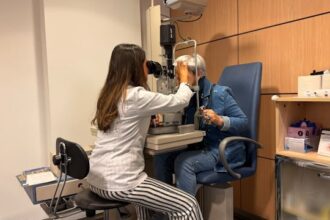Listening to music while engaging in an activity often makes the experience more enjoyable. Yet new research from UCLA neuroscientists suggests that listening to music after an event may hold even greater power: it can strengthen memory, provided the emotional response to the music reaches an optimal level. The findings, recently published in the Journal of Neuroscience, highlight the delicate balance between music, emotion, and memory.
Lead author Stephanie Leal, a professor of integrative biology and physiology at UCLA, explained that the type of music mattered far less than the emotional response it evoked. Whether the music was happy or sad, familiar or unfamiliar, these qualities were secondary to the listener’s own internal state. “There was an optimal level of emotional response that aided in remembering the details of an experience,” she said. “Too much or too little emotional response had the opposite effect—people recalled fewer details, though they often remembered the general gist of the experience more clearly.”
The researchers designed their study to explore this phenomenon in a controlled setting. Volunteers were first shown about one hundred everyday objects—items such as laptops, oranges, and telephones. After this visual session, they listened to ten minutes of classical music, during which their emotional arousal levels were tracked. Once these levels had returned to baseline, the volunteers took memory tests in which they had to distinguish between objects they had seen before, new ones, and slightly altered versions of familiar objects. Participants also rated their familiarity with the music and reported their emotional responses while listening to it.
The results revealed that music, on its own, did not boost memory across the board. However, specific individuals did show notable improvements, particularly when it came to recognising objects that were similar but not identical to those they had studied earlier. This improvement suggested an enhancement of detail-based memory, the type of recall that allows us to distinguish fine distinctions rather than just remembering general impressions. In contrast, those whose emotional responses to the music were either too strong or too muted tended to rely more on gist-based memory, capturing the big picture but losing track of specifics.
This distinction between gist and detail memory lies at the heart of how human cognition balances efficiency and accuracy. Gist-based memory is vital for functioning in everyday life, as it enables us to retain broad concepts and discard unnecessary details, thereby conserving mental resources. But detailed memory is equally essential, particularly in tasks that demand precision, such as studying, recognising faces, or recalling instructions. As Leal noted, “Music helped with detail-based memory, but only when the level of emotional arousal was just right for that person.”
The implications extend well beyond the laboratory. For students, listening to moderately arousing music after studying may sharpen the retention of crucial details for exams, whereas listening to highly emotional music could inadvertently blur recall. Clinically, the findings are even more intriguing. Because music influences the hippocampus, the brain region essential for transforming experiences into long-term memories, it could be harnessed to either strengthen or soften memory depending on therapeutic goals. For example, music might enhance memory for details in older adults or those in the early stages of Alzheimer’s disease. At the same time, in conditions like PTSD, it might instead be used to promote gist-based memory, reducing the sharpness of traumatic recollections.
However, the researchers caution that there is no one-size-fits-all approach. The “sweet spot” of emotional arousal varies significantly between individuals, meaning that therapies will need to be personalised. Leal and her team stress that continued research is crucial, particularly at a time when funding for Alzheimer’s research remains uncertain. “Music is non-invasive, low cost, and easy to personalise,” she said. “But without adequate support, it will be difficult to scale this research into treatments that could be both effective and widely accessible.” By illuminating the subtle ways in which music shapes memory, the study underscores the extraordinary potential of this everyday art form to influence learning, therapy, and ageing.
More information: Stephanie Leal et al, Fine-Tuning the Details: Post-encoding Music Differentially Impacts General and Detailed Memory, JNeurosci. DOI: 10.1523/JNEUROSCI.0158-25.2025
Journal information: JNeurosci Provided by University of California – Los Angeles








